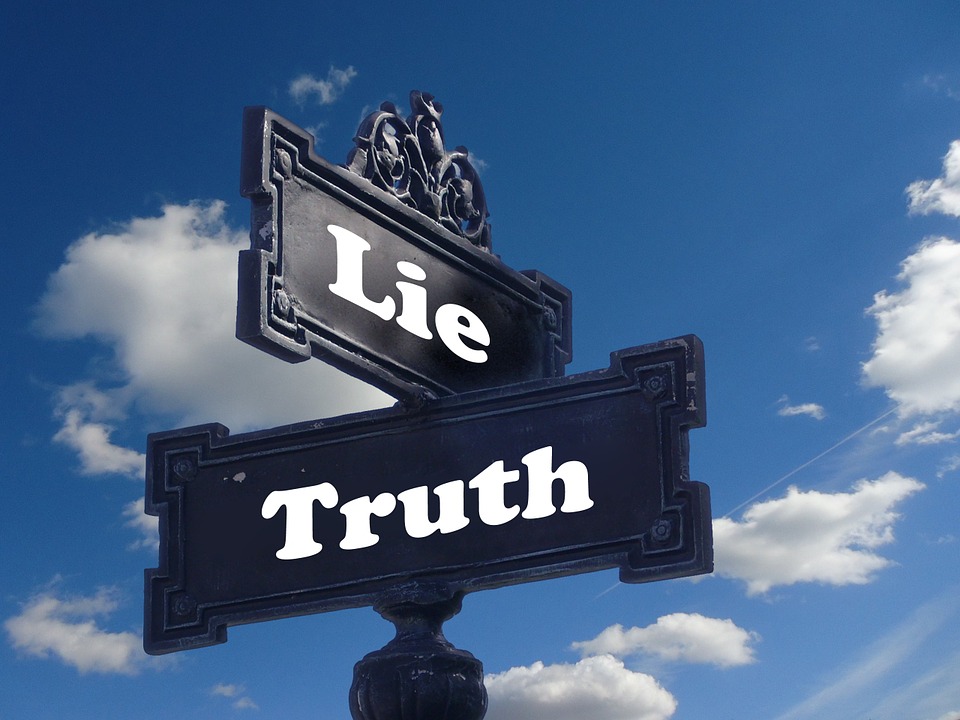Originally published by Jennifer Lea Reynolds in her Human Kind column for Psychology Today online, August 6, 2018.
Does this outfit fit me well?
How did you like my singing?
My new boyfriend is wonderful, don’t you think?
Most of us have probably been in a position where we’ve been asked a question in which we provide a not-so-honest response in an effort to be kind. Sometimes it’s to protect feelings. Sometimes, it’s to protect our own ego.
“A white lie,” says Dr. Julia Breur, a licensed marriage and family therapist with a private clinical psychotherapy practice in Boca Raton, Florida, “is a well-intentioned untruth” that’s said despite the fact that we often feel uneasy about telling them in the first place. “It is usually a small, deliberate and harmless fib, often done to spare someone’s feelings and to do no harm – its intention is to produce favorable results.”
For example, if the reality is that someone’s new shorts are ill-fitting, the honest truth would be to say so. If a person thinks they’re the next Celine Dion, but their voice makes you want to cover your ears, telling it like it is would mean conveying your pure, unfiltered thoughts.
However, empathy kicks in, and rather than telling your friend that you wondered when the dogs would start howling as they sang, it’s sometimes easier and nicer to let them down gently – if at all – so they can hold on to hope and not feel crushed (and you can preserve the relationship).
But as you’ll see, there’s more to it. White lies can create some complexities.
What to Know About White Lies
White Lies Can Be Good…
“Individuals of all ages who have empathy understand that sometimes telling little white lies can protect other people from getting hurt unnecessarily,” says Barbara Greenberg, a clinical psychologist in Fairfield County, Connecticut. “Most people that I have come across tell these little white lies because they understand that 100 percent honesty all of the time is not beneficial.”
A white lie, she explains, spares people from unnecessary hurt. People who tell them should be praised for their kindness and the good outcome that usually comes from not saying potentially hurtful comments.
…But White Lies May Harm You Emotionally

At the same time, Dr. Breur emphasizes the importance of paying attention to the way we respond to someone. The fact is, she says that not telling the truth can take its toll on you; it’s not always about the person the white lie is being told to.
For example, she says that someone who always tells others that “all is good” when it comes to an ailing parent in an effort to avoid discussions about how serious their health issue really is, can eventually face stressful experiences. When that parent eventually passes away, the person who always conveyed an “all is good” response ends up emotionally broken, finding it more challenging to accept the help she needs from others – emotional help she could have received all along had she not fibbed.
White lies can also initiate mistrust between individuals and the kind of white lies that are told to avoid one’s personal accountability can compromise one’s integrity, Dr. Breur adds.
White Lies May Convey Kindness, But at What Cost?
Sometimes, telling white lies often depends on the situation, Dr. Breur says. For example, consider a woman who has not seen her mother for several months. The daughter has gained noticeable weight, yet the mother responds by excitedly declaring that she looks great.
“I emphasize during psychotherapy sessions with my patients that context helps define meaning,” Dr. Breur says. “So when we look at the context of a mother saying ‘you look great’ when she clearly sees that her daughter has gained weight, it can be acceptable. It reflects the intention of the white lie which is kindness, protection and unconditional love.” Otherwise, white lies – especially when told to avoid personal accountability – can start a cycle of mistrust between people, ultimately compromising integrity, she adds.
Therefore, it’s important to ask ourselves when it is and isn’t appropriate to deliver the hard, honest truth, and when it’s best to step back and offer a more delicate response. More often than not, it’s about finding a balance between the two.
Truth-Telling Tips
“I recommend that when you are about to tell a white lie, take a moment and ask yourself why not just tell the truth – slow down and think out how to kindly express your truth,” Dr. Breur explains.
There need not be a black and white, sarcastic/rude versus flowery/kind thoughts in terms of how to craft a response. Dr. Breur adds that it’s important to strike a balance and to choose your words wisely instead of offering a false statement for the sake of being kind.
She offers these suggestions:
Here are a few examples of how to respond truthfully, without hurting someone someone’s feelings or compromising your relationship.
- Instead of saying “I was stuck in traffic,’ consider telling the truth. Say that your son had a temper tantrum and you had to help him calm down, which caused the delay. You’re human after all, and these things happen!
- Instead of saying the turkey meatloaf is delicious, consider saying: “This is a new taste for me and I am enjoying eating something new.”
- Instead of saying someone’s outfit is “absolutely beautiful,” consider saying: “I enjoy seeing you express yourself through fashion – you are a unique and beautiful individual!”
It’s necessary to be mindful of other people’s feelings, but that’s not the green light to engage in outright lies just to appear kind or save face. Yes, many times white lies provide just the right dose of loving intent, but there are instances where they can weaken relationships or provide a false sense of hope or confidence. Give pause to the truths and the little white lies you tell, carefully considering when it is you use them and why – and if it’s truly the best response given the particular situation and nature of your relationship.


